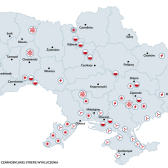Tag:
International cooperation
European Commission priorities for 2024-2029. The view from Poland on energy and climate
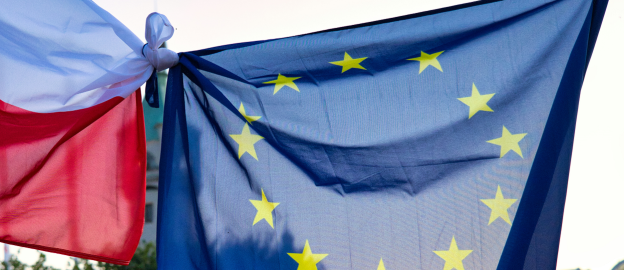
The upcoming European Parliament elections will open a new chapter in EU climate and energy policy. The new European Commission, which begins its 5-year term in the fall, will have to monitor the implementation of a wide range of files related to the ‘Fit for 55’ package and navigating the Union towards the 2050 goals by setting targets for 2040. It will also certainly propose a new political strategy, as the dynamics of the discussion in the EU is in a state of constant flux. From Poland’s perspective, what new priorities of the European Commission will be most important and gain support and interest?
35 minutes minutes
European Commission priorities for 2024-2029. The view from Poland on energy and climate
The upcoming European Parliament elections will open a new chapter in EU climate and energy policy. The new European Commission, which begins its 5-year term in the fall, will have to monitor the implementation of a wide range of files related to the ‘Fit for 55’ package and navigating the Union towards the 2050 goals by setting targets for 2040. It will also certainly propose a new political strategy, as the dynamics of the discussion in the EU is in a state of constant flux. From Poland’s perspective, what new priorities of the European Commission will be most important and gain support and interest?
35 minutes minutes
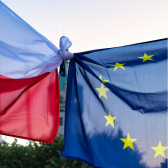
Poland's support in the energy crisis. Last call for NRP

If Poland does not come to an agreement on the NRP in the coming months - it will be too late for sensible spending of the money available to the country. By the end of June, the Polish government may present to the European Commission changes to the spending plan for the National Recovery Plan - completed with investments to increase resilience to the energy crisis. Consultations with the EC are just starting. This is the last bell for Poland to reach for loans and grants under the the Recovery and Resilience Facility and the REPowerEU plan. How to change the Polish NRP to make it a practical response to the energy crisis?
6 minutes minutes
Poland's support in the energy crisis. Last call for NRP
If Poland does not come to an agreement on the NRP in the coming months - it will be too late for sensible spending of the money available to the country. By the end of June, the Polish government may present to the European Commission changes to the spending plan for the National Recovery Plan - completed with investments to increase resilience to the energy crisis. Consultations with the EC are just starting. This is the last bell for Poland to reach for loans and grants under the the Recovery and Resilience Facility and the REPowerEU plan. How to change the Polish NRP to make it a practical response to the energy crisis?
6 minutes minutes

Electricity market design: one size won’t fit all

The energy crisis has highlighted imperfections in the EU power market. The current rules were created almost 30 years ago with the aim to incentivise large conventional power plants, but they now need to be adapted to new challenges.
2 minutes minutes
Electricity market design: one size won’t fit all
The energy crisis has highlighted imperfections in the EU power market. The current rules were created almost 30 years ago with the aim to incentivise large conventional power plants, but they now need to be adapted to new challenges.
2 minutes minutes
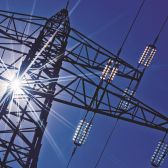
Russian oil disappearing from Europe

In 2021, about a quarter of the oil used in the EU, about €48 billion worth in total, came from Russia. The invasion of Ukraine prompted EU countries to impose sanctions on this commodity. However, the sanctions contain loopholes that have made Poland the EU’s largest importer of Russian oil. While sealing the sanctions regime is possible, electrification of transportation will in the long run safeguard against the risk of replacing dependence on Russia with dependence on other petrostates.
16 minutes minutes
Russian oil disappearing from Europe
In 2021, about a quarter of the oil used in the EU, about €48 billion worth in total, came from Russia. The invasion of Ukraine prompted EU countries to impose sanctions on this commodity. However, the sanctions contain loopholes that have made Poland the EU’s largest importer of Russian oil. While sealing the sanctions regime is possible, electrification of transportation will in the long run safeguard against the risk of replacing dependence on Russia with dependence on other petrostates.
16 minutes minutes

RRP: The bare minimum for over €9bn

With one year delay the national Recovery and Resilience Plan (RRP) is entering Poland. So far, the discussion around the RRP has focused primarily on money. Meanwhile – and this is particularly evident in the area of energy transition – the RRP is an instrument that has mobilised the Polish government to work out the necessary reforms, involving an in-depth analysis of challenges ahead, assessment of specific solutions, and necessary legal changes, all within specific timeframe. Investment support – although crucial – plays a secondary role in accelerating the implementation of reforms.
10 minutes minutes
RRP: The bare minimum for over €9bn
With one year delay the national Recovery and Resilience Plan (RRP) is entering Poland. So far, the discussion around the RRP has focused primarily on money. Meanwhile – and this is particularly evident in the area of energy transition – the RRP is an instrument that has mobilised the Polish government to work out the necessary reforms, involving an in-depth analysis of challenges ahead, assessment of specific solutions, and necessary legal changes, all within specific timeframe. Investment support – although crucial – plays a secondary role in accelerating the implementation of reforms.
10 minutes minutes

Ukraine's Power System: Peace and War
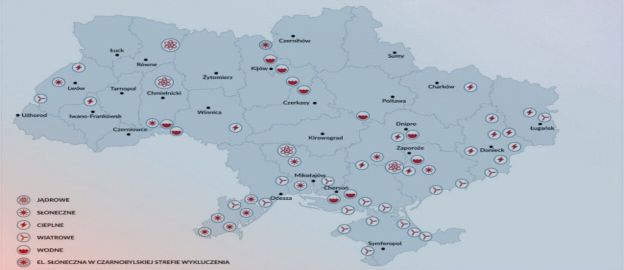
On 16 March, Ukraine was synchronised with the electricity grid of continental Europe, bidding a permanent farewell to the systems of Russia and Belarus. The connection took place in an urgent and emergency procedure. This is an important step towards sustainable cooperation with the European Union. But today, in Ukraine, there is first and foremost a warfare, as well as an energy war, which is no less important for the lives of the civilian population of Ukraine and Europe as a whole.
15 minutes minutes
Ukraine's Power System: Peace and War
On 16 March, Ukraine was synchronised with the electricity grid of continental Europe, bidding a permanent farewell to the systems of Russia and Belarus. The connection took place in an urgent and emergency procedure. This is an important step towards sustainable cooperation with the European Union. But today, in Ukraine, there is first and foremost a warfare, as well as an energy war, which is no less important for the lives of the civilian population of Ukraine and Europe as a whole.
15 minutes minutes
